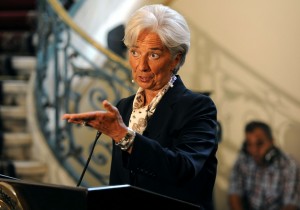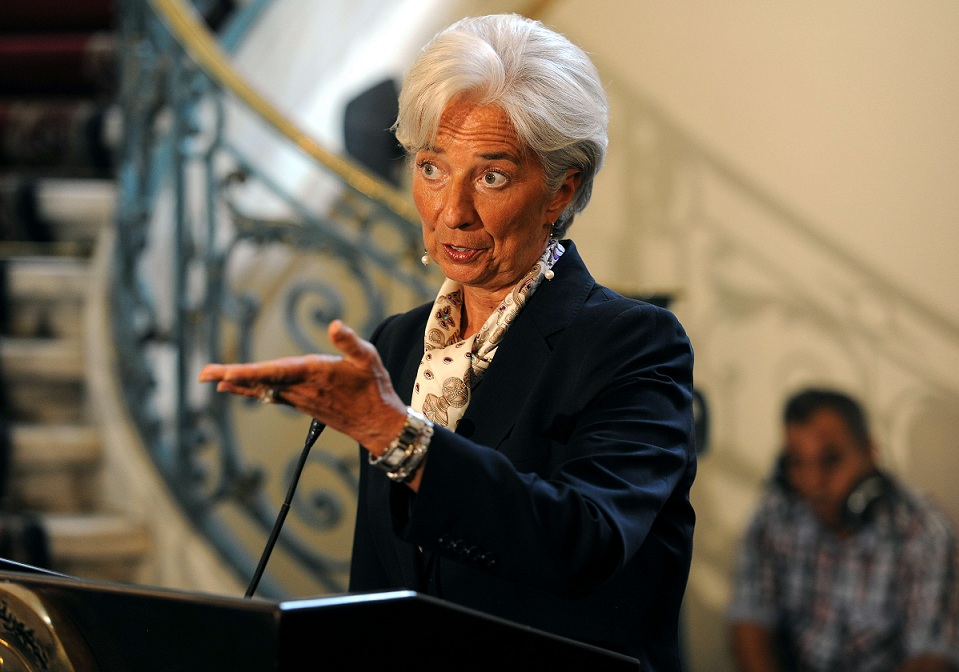
AFP PHOTO / STRINGER
The Egyptian government will not wait until a new parliament is elected to finalise the $4.8 billion loan agreement with the International Monetary Fund, cabinet spokesperson Alaa Al-Hadidy said on Monday.
There have been reports that Prime Minister Hesham Qandil made statements to the effect that the conditions of the loan would be presented to the People’s Assembly, parliament’s lower house, for approval after new parliamentary elections were held.
Elections are scheduled to start 60 days after the country adopts a new constitution in a nationwide referendum. The Constituent Assembly tasked with drafting the constitution is expected finalise the proposed draft by the end of October according to Qandil, with the referendum being held 15 days later.
Egypt is currently without a People’s Assembly after the Supreme Constitutional Court dissolved it on 14 June, after it found that the parliamentary elections law was unconstitutional.
According to the current constitutional declaration, any international treaties or agreements are to be presented to the People’s Assembly before ratification.
“President [Mohamed] Morsy currently has legislative authority in the absence of the People’s Assembly and can ratify international agreements,” said Al-Hadidy.
He added that the government could not wait any longer and could not postpone the loan until parliamentary elections are held.
The issue of the government borrowing from the IMF is controversial and has received a lot of criticism from political parties and groups.
Many on the left argue that such loans usually come with mandatory conditions that the borrowing country liberalise its economy and adopt more free market policies such as reducing subsidies.
Former presidential candidate and Director of the Egyptian Centre for Economic and Social Rights Khaled Ali has filed a case against President Morsy, demanding he reveal the conditions of the loan to the public.
There is opposition to the loan from the Islamist right as well, with many Salafi figures and politicians arguing that interest rates are a form of usury and as such are not in line with Islamic law.
Morsy seems set to finalise the agreement before a new People’s Assembly is elected. There is no guarantee an elected parliament would agree to the loan with the amount of political opposition it currently faces.
According to economist Ahmed El-Naggar, the current state budget deficit, factoring in the unpaid debts of previous loans, is EGP 228 billion, “which is the reason we need to borrow internally and externally.”
The increased deficit is the reason why the state budget authorities are EGP 1,289 billion in debt, of which around EGP 201 billion ($35 billion) are external debts.
“Bridging that deficit is possible if there is a will to do so but that is not available now. If we bridge the deficit then we would be able to do away with internal and external borrowing in a short while,” said El-Naggar.
“The problem with the IMF loan, however, is that the government will use it to bridge the deficit and increase foreign reserves in an artificial manner to then pay off external debts or increase governmental importing, in order to improve the image of the government and the president in front of the public,” he added.
The next president and government would bear the burden of paying off most of the loan since payment start 39 months from the date of the loan’s start. Only 42 percent of the loan would be paid off during Morsy’s term while his successor would have to pay off 58 per cent of the loan.
“The only situation where this loan is acceptable is if it is used for starting production projects, mainly in the industrial sector, with the returns from production paying off the loan, or providing soft loans at the same interest rate to small and co-op projects. Turning Egypt into a workshop and contributing strongly in reducing unemployment and creating economic development,” El-Naggar said.
This scenario, he added, is tied to the stability of the Egyptian pound in relation to the United States dollar exchange rate over the next five years.



